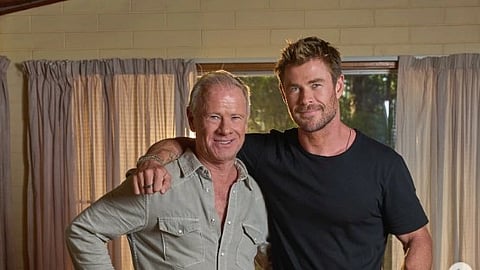"A Road Trip to Remember," an intimate one-hour documentary, will air on National Geographic on November 23, 2025. It will also stream on Disney Plus and Hulu the following day.
The documentary follows Chris and Craig on a motorcycle journey across Australia as they revisit places from Craig's childhood in the small outback town of Bulman. Although it appears to be a sentimental journey, it is also a carefully structured form of reminiscence therapy guided by neuroscientists.
The documentary also explores reminiscence therapy, guided by Dr. Suraj Samtani from the Centre for Healthy Brain Ageing at the University of Sydney.
Chris explains that the idea is to capture as many memories as possible while his father still can, and also to revisit earlier experiences. Throughout the film, viewers see the two sitting by campfires, flipping through old photographs, and navigating emotional and physical landscapes together. The documentary feels like a race against time, an effort to anchor memories before they fade.
The Science of Reminiscence Therapy


